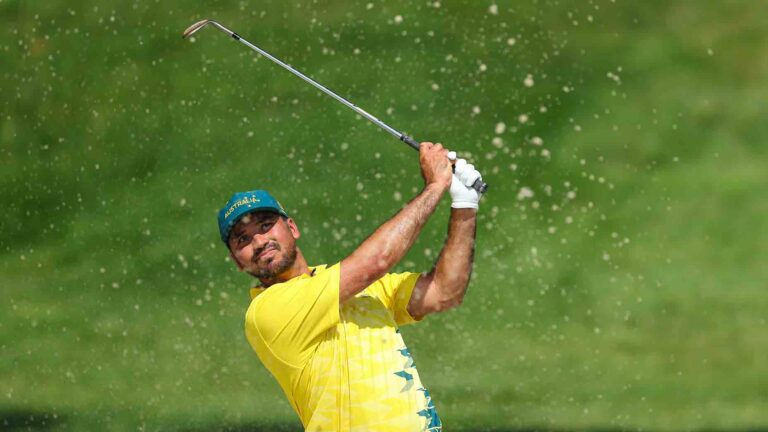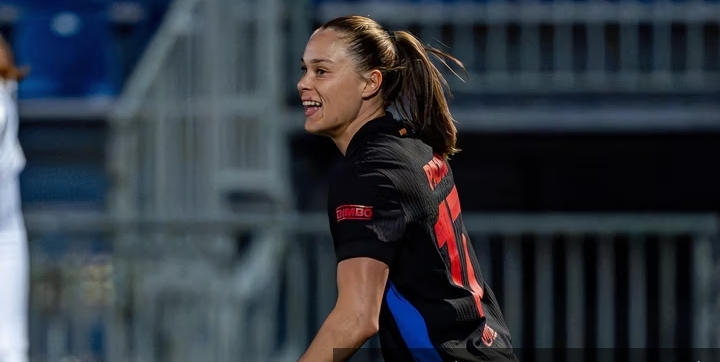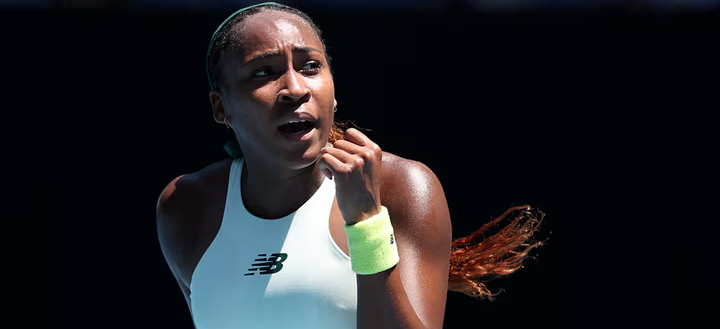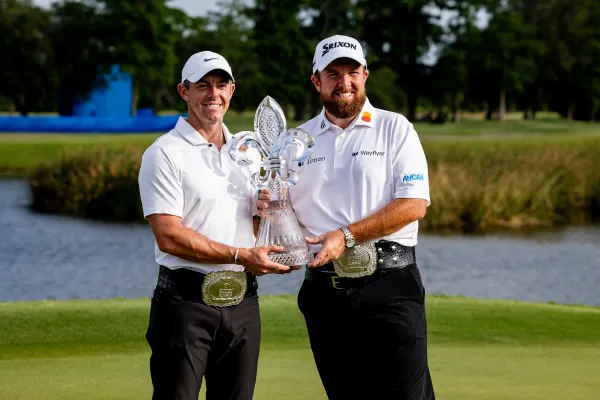Eight years later, former world No. 1 Jason Day opens up on a career regret
Jason Day’s Olympic Aspirations: A Glimpse into 2028 and 2032
Jason Day is gazing into the future, envisioning the 2028 and 2032 Olympic Games. The prospect of competing in Los Angeles in 2028, and later in Brisbane, Australia, in 2032, is both exhilarating and daunting. For Day, the idea of playing on home soil in Brisbane is particularly appealing, evoking the rallying cry, “Aussie, Aussie, Aussie!” as he contemplates the possibility of adding an Olympic medal to his accolades.
In a light-hearted exchange on Tuesday at Le Golf National, as the players prepared for this year’s Olympic tournament, Day and fellow golfer Min Woo Lee engaged in a playful conversation about the future. Lee, who is 26, teased Day about whether he would still be competing by then.
“Will you still be playing?” Lee asked with a hint of mischief.
“How far is that away?” Day replied. “Eight years?”
Lee then guessed Day’s age in 2032, estimating him to be 54. To this, Day responded with a chuckle, acknowledging that he would indeed be 44 by then. “I’m the old man on the team apparently,” Day said, making light of his situation.
This banter was more than just playful; it highlighted a larger narrative about Day’s evolving perspective on the Olympics. Once indifferent to the Olympic Games, Day now finds himself contemplating his future involvement with renewed enthusiasm.
In 2016, Day had been a notable absentee from the Rio Olympics. At that time, he cited concerns over the Zika virus as a significant factor in his decision. Reflecting on his absence, Day now expresses regret, acknowledging that his reasons for not participating were not as compelling as he initially believed.
Day, who had been the world No. 1 or No. 2 around that time, admits that he was overwhelmed and burnt out. The pressure of being at the top of his game, combined with the challenges of representing his country on such a grand stage, led him to prioritize his well-being over the Olympic experience. “I think I was like to a point where I was kind of burnt out,” Day confessed. “And the last thing on my mind was representing Australia in the Olympics.”
Looking back, Day wishes he had made a different choice. “I should’ve just sucked it up and gone down and played,” he reflects. “It would have been a great experience for me to go down there and represent something that’s bigger than you.”
When the Tokyo Games came around in 2021, Day was again sidelined, this time due to injuries and competition from higher-ranked players like Cam Smith and Marc Leishman. Although Australia is a smaller country with fewer top-ranked golfers, Day felt confident that if he performed well, he could secure a spot on the team. Unfortunately, his health issues and the fierce competition kept him from qualifying.
Day’s shift in perspective can be traced back to his experience at the U.S. Open, where burnout and the demands of his career were evident. Over a 13-month period, Day had secured eight victories, which came with a toll on his physical and mental well-being. “After a while,” Day said, “you can only give out so much of yourself before you go — you pull the brakes and you’re saying, I’m not doing that anymore.”
Recently, Day has been inspired by the emotional intensity displayed by Olympic athletes from other sports. He watched Olympic judo competitions and was moved by the profound impact that winning or losing has on these athletes. The dedication and emotional weight carried by competitors in judo and other sports have altered Day’s view of the Olympics. “Watching some of these women break down, showing how much it actually means to them, not only to represent their country but to try and win a medal — it’s very inspiring to watch,” Day said.
For Day, the Olympics now represents more than just another tournament. It symbolizes an opportunity to achieve something beyond personal success, to be part of something larger than himself. The transformation in his perception underscores a newfound appreciation for the significance of competing on the Olympic stage.
As the conversation turned to the current Olympic golf tournament, Day allowed himself to entertain the possibility of success. Despite his age and the competitive field, the Olympics’ rare occurrence every four years keeps him motivated. With the support and camaraderie of his teammates, Day remains hopeful about his prospects and the chance to add an Olympic medal to his career achievements.
The playful exchange with Min Woo Lee was more than just a friendly chat; it underscored a significant shift in Day’s approach to the Olympics and his aspirations for the future. Whether he will be competing in






